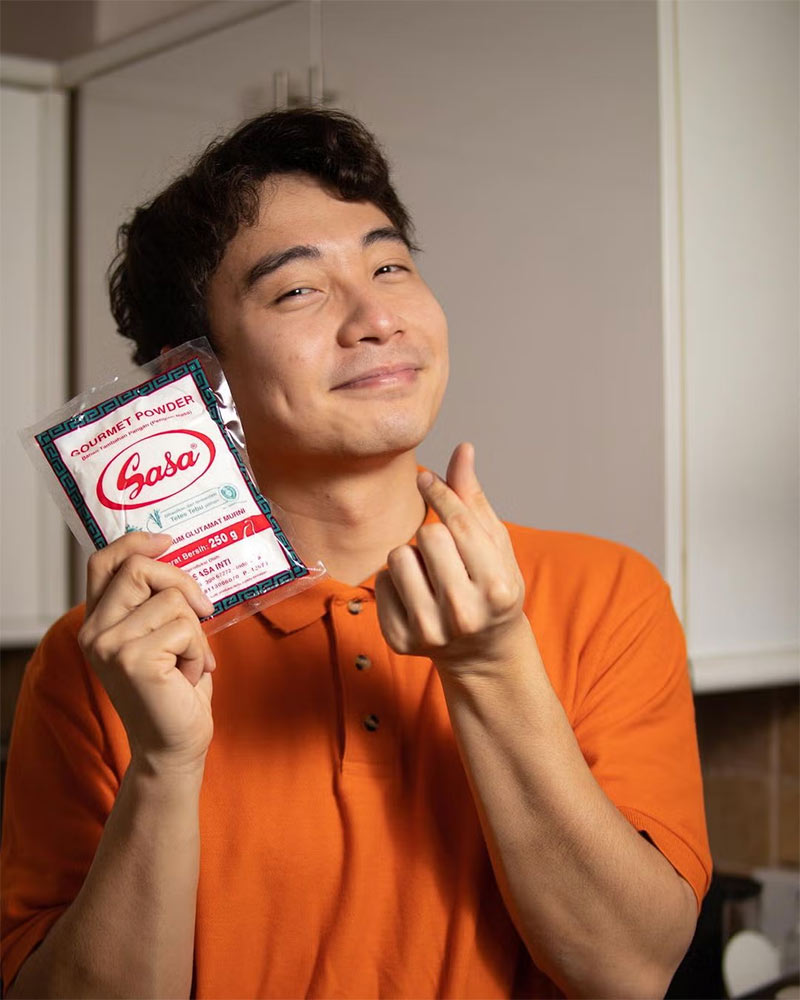In the world of culinary cuisine, Gordon Ramsay needs no introduction.
The Scottish-born chef, restaurateur and television personality has spent decades building a reputation for fiery critique in the kitchen, Michelin stars and a global empire of restaurants. He is, in many people's minds, the definitive, and the prime example of a "kitchen boss."
Known for his unfiltered feedback, harsh mouth, and out-of-this-world critics, Gordon is tough, exacting, unforgiving, and highly successful.
What this means, seeing him get called out, would be a tall order.
But then enters Uncle Roger, a witty, loud-mouthed persona donned by Malaysian-British comedian Nigel Ng.

Uncle Roger first became a viral sensation in 2020, as a YouTuber who dissected and roasted clips of Western chefs and home cooks attempting Asian dishes.
The story happened in Kuala Lumpur, where Nigel Ng was born in 1991 and spent his formative years before moving abroad for education.
Originally a data scientist by trade, Ng’s side-hustle stand-up comedy gradually overtook his day job. With the pandemic-era lockdowns nudging content creators online, he seized the moment and introduced Uncle Roger: an orange-polo-wearing, foot-up-on-chair, "Haiyaa!"-shouting uncle figure with strong opinions on fried rice, misused colanders and improper MSG.
The spark-video that ignited Uncle Roger’s international profile featured him reacting to a cooking clip of egg fried rice where the presenter rinsed cooked rice in a colander, and Uncle Roger could not let it slide. The character’s exaggerated accent and hyperbolic commentary struck a chord globally.
But what really made Uncle Roger bold wasn’t just the humor, but it was his willingness to critique the much-revered figure of Gordon Ramsay himself.
Uncle Roger roasted Gordon about a year after praising him for cooking a proper, and delicious fried rice, commenting on Gordon's video when he was in West Sumatera, Indonesia.
Gordon, for his show Gordon Ramsay: Uncharted (Season 2, episode "Sumatra's Stunning Highlands"), he prepared his own version of Indonesian fried rice (Nasi Goreng).
In the episode, filmed in a region famous for its Minangkabau cuisine, Gordon was shown transforming leftover rice into the dish, using local Indonesian ingredients. The main challenge in the episode, was mastering the iconic Beef Rendang, under the mentorship of Indonesian culinary expert Chef William Wongso.
Gordon specifically used Solok rice, which is grown in West Sumatra and known for its large grains and ability to absorb flavor, making it perfect for fried rice. For the spices, he included traditional elements like sambal (chili paste), chili, galangal (which adds a sweet and citrusy flavor), sweet soy sauce, and chive blossoms for fragrance. And for the protein and enhanced flavor, his recipe included rendang (a famous West Sumatran caramelized beef curry) to enhance the flavor.
In his own video, Uncle Roger analyzed Ramsay’s fried rice preparation and gave him something rare from the uncle persona: approval.
And just like in his other videos where he praised the cook, Uncle Roger gave Gordon the "Uncle" title, as a token of appraisal.
In fact, Gordon was the first White man to make Uncle Roger-approved fried rice.
Uncle Roger roasted Gordon when the famous chef failed to properly cook ramen (according to him).
But Uncle Roger got away with it.
While a lot of people have criticized Gordon for his culinary taste, like his eggs, for example, practically nobody managed to roast Gordon, received his attention, and later befriended him.
The two even made several videos together.
In one video from the BBC, Gordon asked Uncle Roger what should he do to win his Uncle title back. According to Ramsey, he spent a lot of time in Indonesia, and should at least perfected his skills in Asian cuisine.
What began as a comedic takedown evolved into respectful recognition.
Gordon Ramsay’s willingness to engage and perhaps learn from nuanced Asian food traditions helped turn what might have been antagonism into admiration. For Uncle Roger, it meant validating a culture of cooking rice properly , and for Ramsay, it meant broadening the lens of his culinary world.
Among other chefs and cooks who had been roasted by Uncle Roger, one of the most famous would be Jamie Oliver.
Pretty much all of his videos have been roasted and harshly criticized, but in a comedic, entertaining ways.
But beyond his fried rice, MSG jokes and “haiya” exclamations, the Uncle Roger saga highlights deeper themes: the tension between Western food media and Asian cooking traditions, the phenomenon of reaction-culture as entertainment, and the power of a persona to bridge cultural gaps.
Ng has addressed criticisms that his accent-ridden performance plays into stereotypes, pointing out that his goal is to uplift Asian voices, not demean them.
